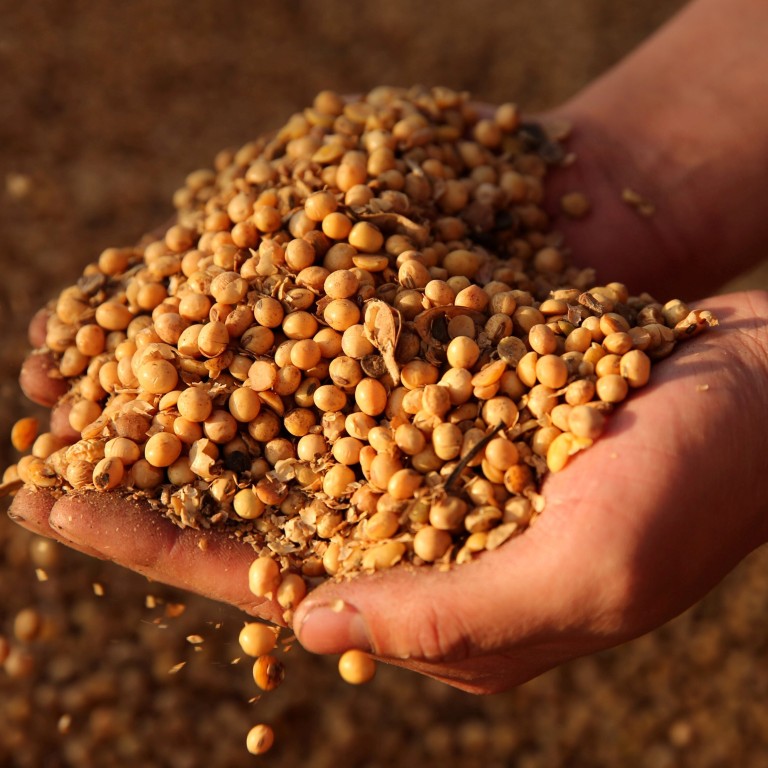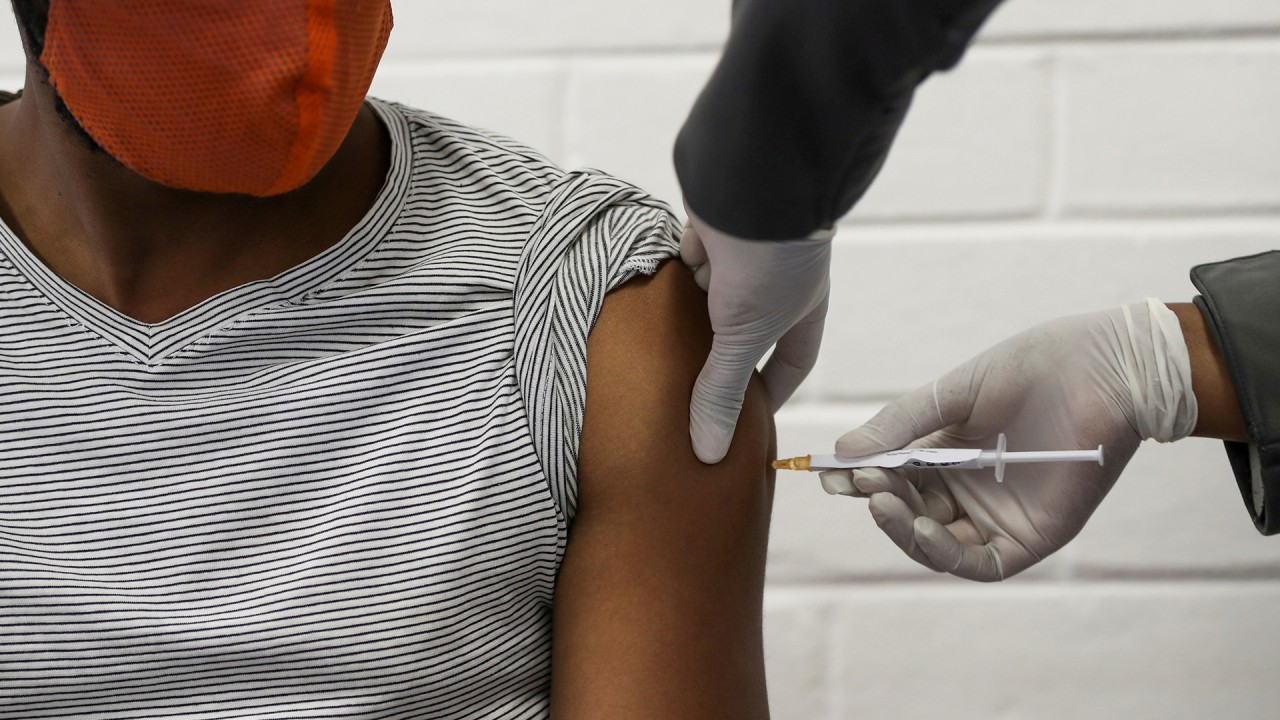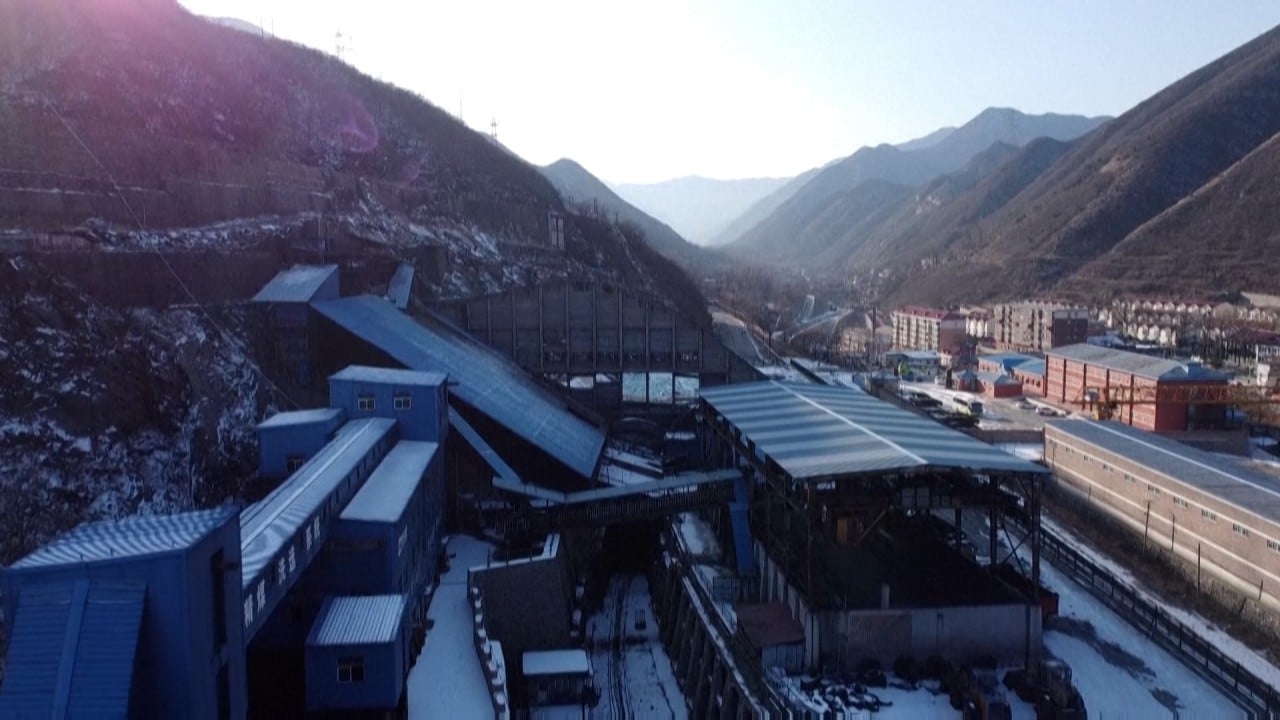
China-Africa trade bouncing back from Covid-19 impact, figures suggest
- Two-way trade for the year to the end of August shows 40 per cent rise from coronavirus-hit 2020
- South Africa is the biggest trade partner, rallying after easing strict pandemic measures, while China is actively buying African agricultural products
In the first eight months of the year, total two-way trade between China and African countries grew by 40 per cent year on year to US$162.7 billion, according to Chinese customs data.
In the year to the end of August, China bought goods worth US$68.8 billion, up 45 per cent from the same period last year. It has continued to source raw materials such as oil, cobalt and copper, and also bought agricultural products such as chilli pepper, cashew nuts, sesame seeds and spices.

02:28
South Africans skeptical about Covid-19 vaccines as AstraZeneca rollout halted
Tanzania last year began to export soybeans to China, as Beijing sought to cut its reliance on the US and Brazil for supplies of the oilseed. Similar deals have been struck for Kenyan avocados, tea, coffee and roses, Ethiopian coffee and soybeans, beef products from Namibia and Botswana, fruit from South Africa, and Rwandan coffee.
In the eight-month period, the biggest trading partner was South Africa, whose trade with China picked up this year as the country started easing the tough restrictions it had imposed to fight the coronavirus. Trade between China and South Africa grew by 66 per cent to US$34.7 billion compared with last year.
Charles Robertson, global chief economist at Renaissance Capital, an emerging and frontier markets investment bank, said the big jump in trade reflected the impact of lockdowns in countries including South Africa in the second quarter of 2020.
“Leading indicators in China suggest a slowing of this trade recovery into the year end,” he said. “China’s efforts to cut pollution before hosting the Winter Olympics in February seem to have hit industry, and real-estate problems might also hit demand.”
China, Africa and the 3 years since Xi promised to rebalance trade
Ties between China and Africa have been bolstered by the Belt and Road Initiative, China’s massive trade and infrastructure development plan, which has funded the construction of motorways, hydropower plants and railways across the continent.
However, analysts attributed this year’s increase of both imports and exports to price surges for commodities including metals and petroleum.
Last year, when countries implemented tough pandemic control measures including border and movement restrictions and factory and port closures, there was a slump in commodities such as oil and copper.
Since China is the biggest buyer of Africa’s oil and metals such as cobalt and copper, its imports dropped during 2020’s economic slowdown.
Prices for key commodities started recovering late last year and this year, helping to boost trade. For instance, crude oil has recovered from a historic low of less than US$20 per barrel in April and May last year to about US$80.
Mark Bohlund, a senior credit research analyst at REDD Intelligence, said the rise in Chinese imports from Africa was driven largely by sharp increases in the price of copper, oil and other natural resources compared since the first half of 2020.
“As a consequence, the growth in Chinese imports will probably now slow,” Bohlund said. He predicted that the same could happen to Chinese exports once Covid-19’s impact fades in Sub-Saharan Africa, which is “expected to experience a slower return to pre-pandemic GDP growth than other regions”.

02:06
Chinese cash funds African coal plants despite environmental concerns
Chinese officials have said they are making efforts to import more agricultural products, and Beijing has signed trade deals with Kenya, Tanzania, Ethiopia, Mauritius and Rwanda.
Wu Peng, director general of the Chinese foreign ministry’s African affairs department, said last month that Beijing was working on measures to expedite exports of agricultural products from the continent to China, with details expected to be unveiled next month at the Forum on China-Africa Cooperation in Dakar, Senegal.
But even if China eases entry for African products, analysts say challenges remain.
Hannah Ryder, chief executive officer of Africa Reimagined, a Beijing-based consultancy that helps African brands navigate the Chinese market, said demand for African products, especially agricultural, was rising. Chinese consumption was increasing along with income, and diversifying in taste and preference, such as organic products gaining popularity, she said.
However, she said entering the Chinese market remained a major challenge, despite the Chinese government trying to diversify sources of agricultural products to improve food security.
It was worth noting that since 2001, China had applied no tariffs for most products from the least developed countries, of which African countries make up the majority, Ryder said – but she added that fresh products in particular required special technical approval for entry, known as SPS agreements.
“China is not unusual in requiring these kinds of approvals,” she said. “But there is evidence that its requirements are somewhat more stringent than those of other importers from Africa.”

